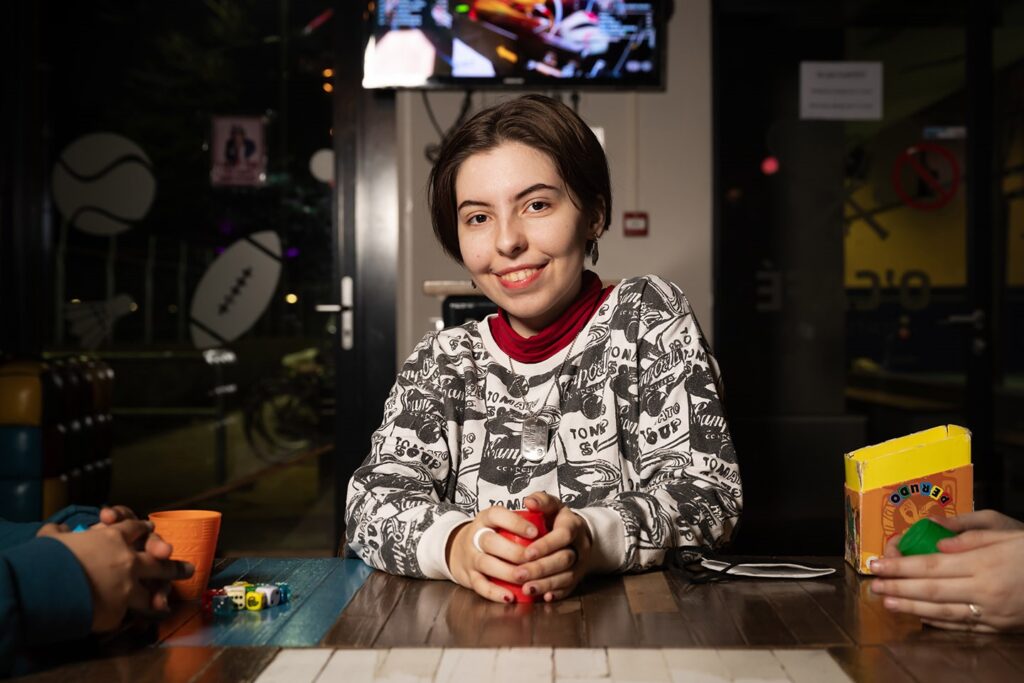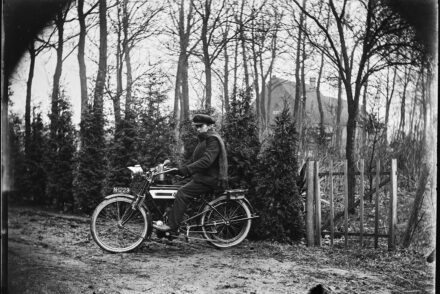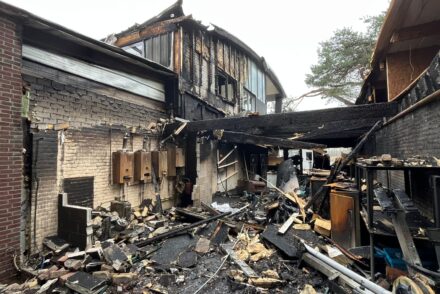American Kai Matus (22) will not return to the US after graduation: ‘Trans people are not safe there’
Kai Matus (22)’s student days in Tilburg have come to an end. The Liberal Arts and Sciences student recently graduated and left the Netherlands. He didn’t return to the US, where new transgender laws exclude him. Speaking to Univers, he reflects on his youth and student days.

‘From a young age, I felt like I didn’t fit into the category of ‘woman.’ I didn’t immediately know what I was, but I knew for sure: this isn’t me. I was born in the United States and moved to the Philippines around age 12. Around that time, I came out at school as gender nonconforming. Many people didn’t take me seriously at the time because I was only 12. But I remained consistent in how I felt.
‘When puberty began and my body developed feminine characteristics, my mental health deteriorated rapidly. The growing gender dysphoria—the deep sense of unease one experiences when one’s birth sex and gender identity don’t match—made it clear to me: this body, this name, this social image, is not who I am.
‘My nickname, Kai, was my official middle name.’
‘In 2018 or 2019, I got my first breast binder. I’d been dressing fairly gender-neutral for years, with a loose T-shirt and pants, but the effect of that binder was indescribable. I remember laughing the first time I wore it; it felt so good. I thought: This is right. This is who I am. Then I started watching YouTube videos of people sharing their transitions. I wondered: Do I want this too? What does this mean for me?
‘My nickname, Kai, was my official middle name. People already called me that at school: partly out of convenience, because I had a classmate with the same first name. Because of that, changing my name felt natural: it was already there. I didn’t have to let go of my deadname (the first name someone was given at birth); I just had to leave it behind. And that felt liberating.’
Out of the closet to parents
‘Even though I was called Kai at school, I wasn’t out at home yet. My parents weren’t very involved in my school life, so the name and identity I had there barely registered with them. My mother had noticed that I was dressing less and less feminine.
‘Without me telling her anything, she told the whole family I was a lesbian. She didn’t mean it negatively—she has no problem with that—but it simply wasn’t true. And it showed how little she really listened.
‘My father was often away for work, so I didn’t see much of him during my teenage years. During the pandemic, we all ended up staying home, which was unusual for our family life. During that time, I came out as transgender. I had meetings with a gender therapist and an endocrinologist, we had blood tests, and I told my parents I wanted testosterone injections.
‘Without me telling my mother, she told the whole family that I was a lesbian’
‘What followed was a difficult, emotionally manipulative situation. My father said, ‘I’ll only call you Kai if you do something I approve of. If you do something I don’t approve of, I’ll simply go back to calling you by your old name.’
‘My mother did something similar. Even though she knew everyone called me Kai, she continued to use my deadname unless I’d done something ‘good.’ It even got to the point where they made things like testosterone injections contingent on household chores: “If you clean the house well and polish my boots, you can get a shot.” As if my identity was a reward, not something to be taken for granted.’
No place in the Netherlands, no safety in the US
‘In the Netherlands, I felt truly safe for the first time. I dare to go to the supermarket wearing drag makeup without fear of violence. That’s fantastic. But unfortunately, it’s not financially and medically feasible for me to stay here. Due to health conditions, I sometimes need a wheelchair, and other days—depending on my condition—I use a walker or cane. My disability makes it difficult to find a job, which makes my situation even more precarious.
‘Returning to the United States is not an option. An executive order signed on January 20, 2025—the first day of Trump’s new term—declared my passport invalid. This is because my gender identification in my passport was changed from female to male. As soon as I go through customs and my passport is officially scanned, I could be arrested for using an “invalid” ID.
‘I dare to go to the supermarket wearing drag makeup without fear of violence. That’s fantastic.’
But even if I’m not arrested upon arrival, I’m systematically excluded in the US because laws are changing rapidly. Trans people, for example, are losing their legal protections. Documents are rejected or not processed, medical care can be denied based on religious or personal beliefs, and employment, housing, or government services can be denied without cause. As a person with a disability, I’m even more vulnerable. I’m unsafe in every conceivable scenario.’
Costa Rica
‘Because I can’t stay in the Netherlands and the United States isn’t a safe option, I recently moved to Costa Rica. My parents live here, and although the situation for transgender people in Costa Rica is far from perfect, at least my legal gender identity is recognized. That’s enough for now. Costa Rica at least offers me the opportunity to rebuild my life in relative safety.
‘It’s hard to say goodbye, because my time at university has been incredibly valuable. My friends have promised we’ll stay in touch. There have been so many wonderful moments in Tilburg that I thoroughly enjoyed. This was without a doubt the happiest chapter of my life, because I felt most like myself here.’







